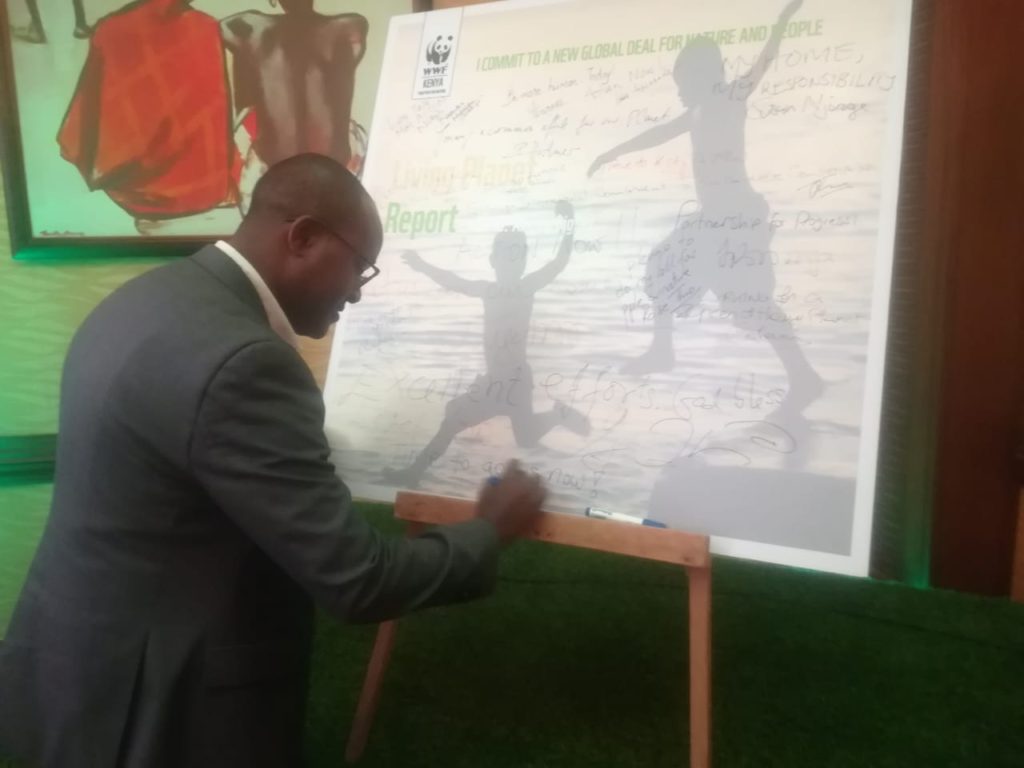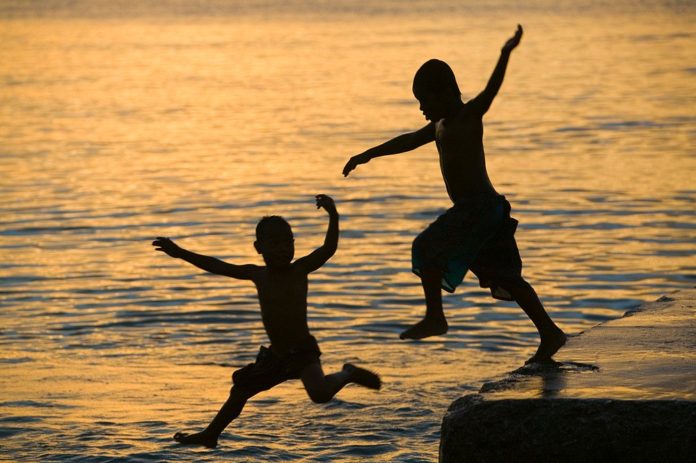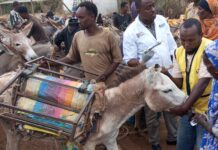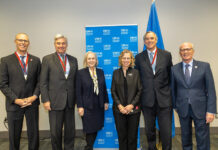By Winnie Kamau
A report by the World Wide Fund for Nature (WWF) has called on governments, individuals and business, to collectively answer nature’s emergency call with a global ‘New Deal for Nature and People’, a roadmap that recognizes the intrinsic link between the health of nature, the well-being of people and the future of our planet.
The L
Nature will collapse if we don’t act now
Speaking during the launch of the report in Kenya, WWF’s Regional Sustainable Investments Manager, Jackson Kiplagat indicated that,
“We are consuming almost double the ability of what nature can provide. We are draining our home, using more than what it is able to give us as humanity. This means we are operating on an overdraft, a debt from nature which is beyond our means. The indicators from the Living Planet Report point at an impending catastrophe. Nature will collapse if we don’t act now, if it does, we do too.”

Nature is the lifeline for the 7.6 billion people inhabiting planet Earth, providing the food we eat, the water we drink and the air we breathe. It underpins our well-being and that of our societies and economies. We need to act now to move it up the agenda, culturally, economically and politically.
According to the publication, humans are pushing planetary boundaries to the edge beyond the limits and further borrowing from the future.
Bending the curve of biodiversity loss
All is not lost. There is a glimmer of hope. The report indicates that it is possible to undo the damage, the current generationcan be the founders of a global movement that changed our relationship with the planet.
Two years from now, Kenya like many other countries will review its progress on the environment and sustainable development by means of the Sustainable Development Goals (SDGs), the Paris Agreement and renew the 2030 targets of the Convention on Biological Diversity (CBD).
It is an opportunity for Kenya, and the global community to protect and restore nature leading up to 2020 – a critical year when leaders are expected to review the progress made on the Sustainable Development Goals, the Paris Agreement and the Convention on Biological Diversity.
By finding a way to develop and coexist with forests, rivers and oceans and ensure they are teeming with life, not plastic, the world leaders will have committed to returning the planet to future generations better than they found it.














